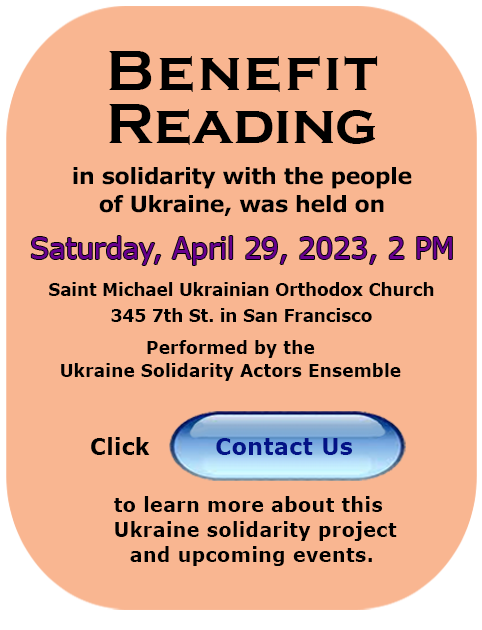
OUR MISSION IS SOLIDARITY WITH THE PEOPLE OF UKRAINE.
The sponsor for this event was the Ukrainian American Coordinating Council.
We have received from the Ivano-Frankivsk Theatre crew an inspiring video message thanking us for our support of their humanitarian work.
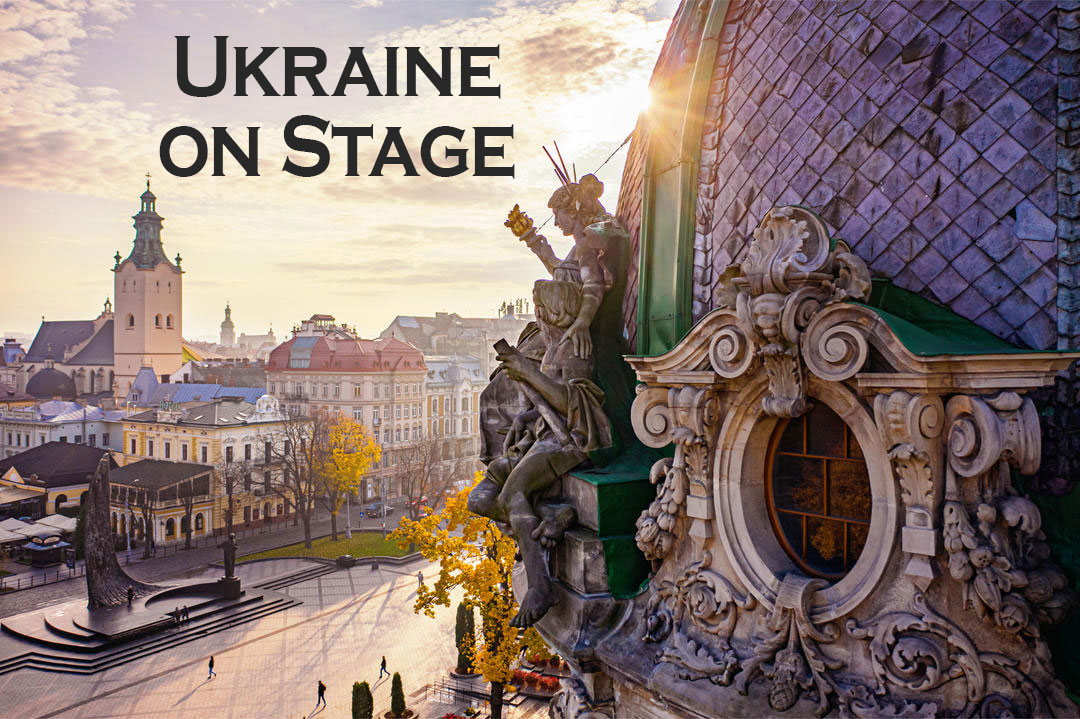
Liberty, holding a torch, sits on a ledge on the dome of the Museum of Ethnography, Arts, and Crafts in Lviv, Ukraine.
This theatrical reading is narrated by Ukrainian Professor Nataliia Goshylyk (visiting scholar at UC Berkeley) and enacted by the Ukraine Solidarity Actors Ensemble. We are raising funds for the work being done by the Ivano-Frankivsk Drama Theatre in Ukraine. The Theater is not only serving as a bomb shelter, community center, and food distribution point, but is also continuing to perform. View their message to us here.
The Narrative Script
As an introduction to the performance that we present on stage, we offer below the narration that weaves its parts together:
Thank you for attending the performance this afternoon of “Ukrainian History on Stage.” Our aim is to raise funds for the Ivano-Frankivsk Theatre in Ukraine. In the midst of this war, the company continues to perform Shakespeare, Chekhov, and a wide range of classical and contemporary plays. The Ivano-Frankivsk Theatre is also serving as a bomb shelter, a community center, and a temporary home for refugees. Your donations will help the company continue to make these contributions.
Today’s performance will focus on two turning points in Ukraine’s history: first, the famine that occurred in the early 1930s, and second, the Maidan Revolution in 2014.
Although Russian leaders say that Ukraine belongs to Russia — is and always has been part of Russia — the truth is that a distinct Ukrainian identity and culture has existed for centuries.
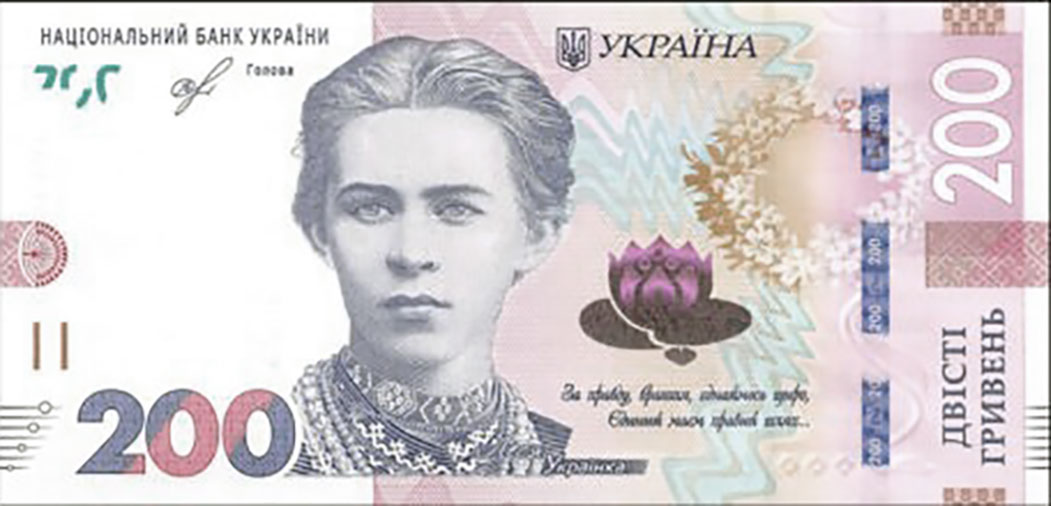
Lesia Ukrainka (1871-1913). Poet, playwright. Advocate for feminist causes and for Ukraine’s freedom and independence
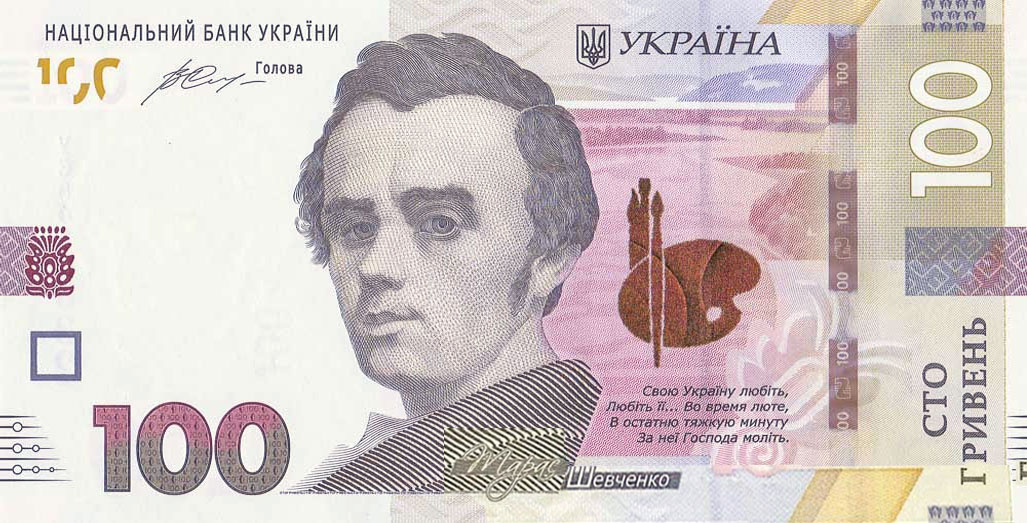
Taras Shevchenko (1814-1861). Writer, artist, and folklorist who is considered the founder of modern Ukrainian literature
One of the 20th-century Ukrainian advocates for the country’s independence was the Jewish writer Vasili Grossman, whose. novel Forever Flowing is about life in a Ukrainian village during the famine in the 1930s.Ukrainians call this time in their history the “Holodomor,” derived from the words for hunger (holod) and extermination (mor). About four million people died during the famine, because of the Communist Party’s five-year plan to collectivize Ukraine’s agricultural economy. To implement the plan, Soviet soldiers and police went from one farm to the next, requisitioning amounts of food far above what the fields were capable of yielding.
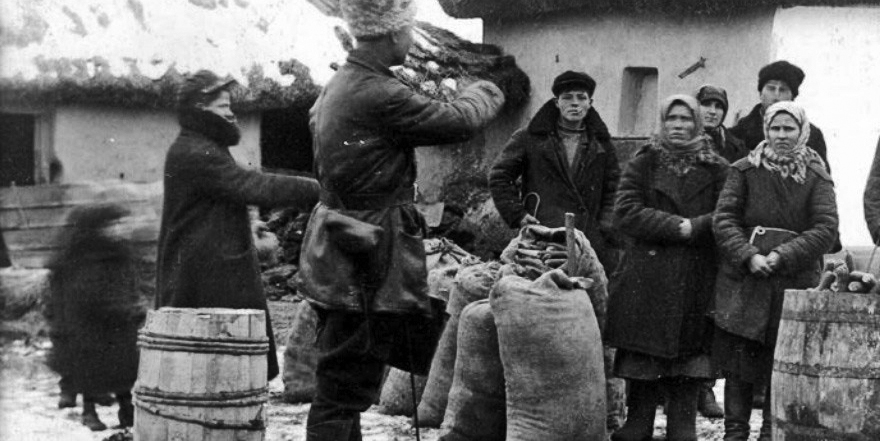
Soldiers confiscate grain from peasants in Novokrasne, Ukraine, in 1932.
Ukrainians call this time in their history the “Holodomor,” derived from the words for hunger (holod) and extermination (mor). About four million Ukrainians starved to death in a famine that resulted from Stalin’s five-year plan to collectivize Ukraine’s agricultural economy. To implement the plan, Soviet soldiers and police went from one farm to the next, requisitioning amounts of food far above what the fields were capable of yielding.
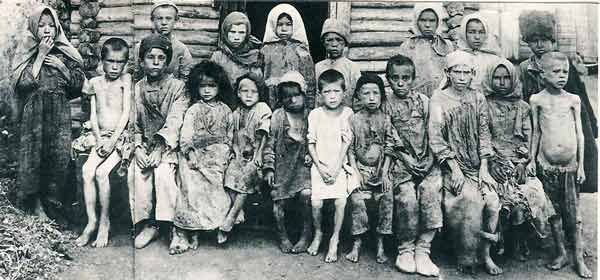 Ukrainian children during Holodomor
Ukrainian children during Holodomor
In Moscow, Stalin proclaimed that Ukrainians were starving themselves in order to discredit the Soviet Union. And he refused to accept food donations from elsewhere. Historians Anne Applebaum and Timothy Snyder explain that what happened during the Holodomor famine was not inevitable, but resulted from Soviet policy. “Simple measures,” writes Snyder, “could have kept the death toll to the hundreds of thousands rather than the millions.”
Now to our reading.
[reading of adaptation of chapter 4 of Grossman’s novel Forever Flowing]
In the years 1931 and 1932, the Soviet leadership in Moscow responded to the devastating food shortage in Ukraine by issuing new declarations.
[reading of December 1932 declaration]
Soviet policy did nothing to alleviate Ukraine’s conditions of famine. About 4 million people in the country starved to death. This loss is remembered in Ukraine: every year, on the fourth Saturday of November there is a national minute of silence at 4 PM, followed by the lighting of candles at memorial sites and in the windows of homes.
Our next reading is about the Maidan Revolution of 2014.
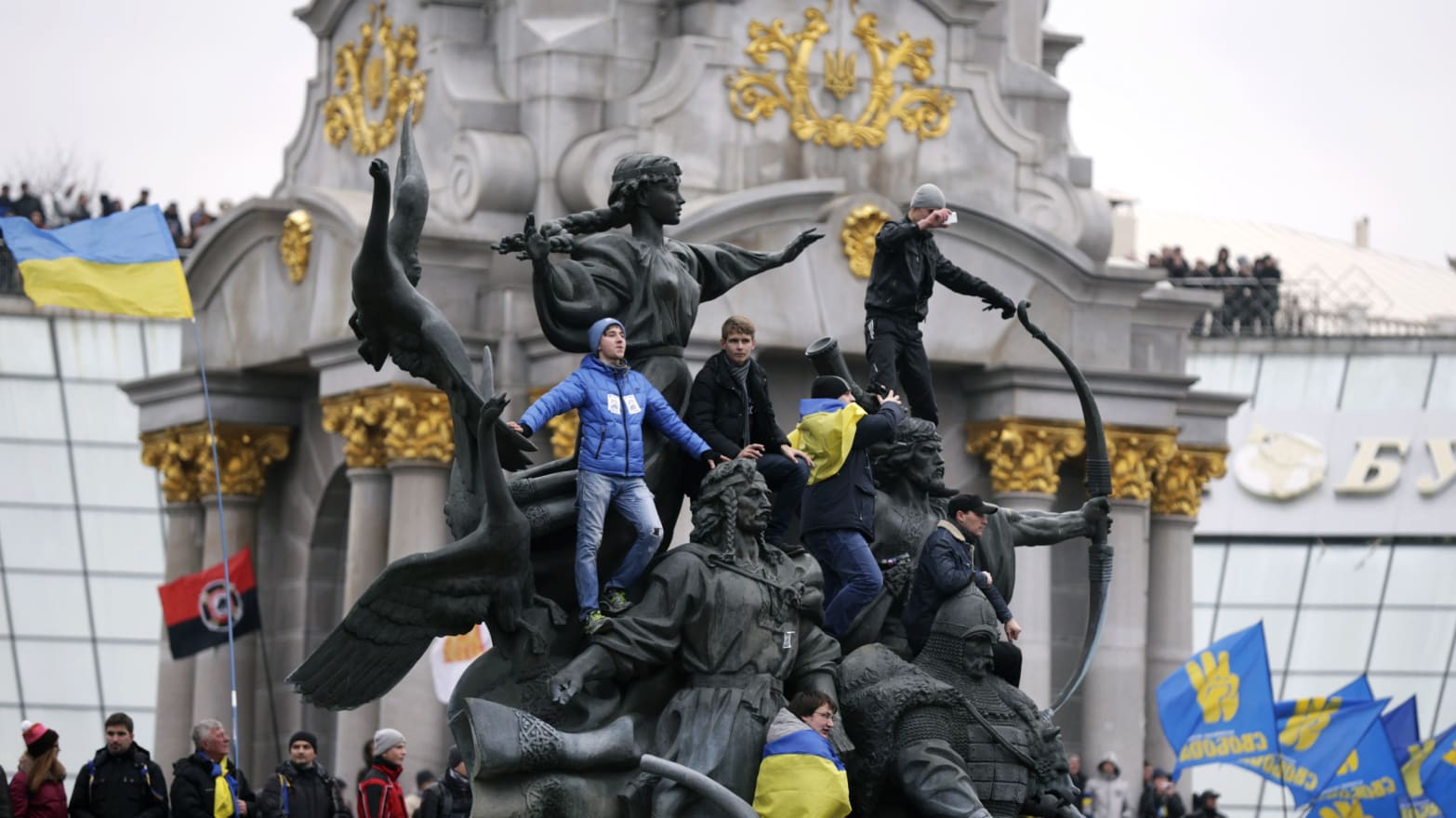
But first, briefly, Ukraine’s history following the Holodomor famine: The Nazis invaded Eastern Europe in 1941. About 6 million Ukrainians died during the war. When the war was over, the Soviet leadership in Moscow sought to stamp out what they regarded as Western influence in Ukraine. Communism, as defined by the Kremlin, called for cultural as well as economic integration of all the Soviet Republics. Hence the Russian language had to be taught in Ukrainian schools; questioning of Soviet policy was made illegal and punished.
All of this came to an end with the fall of the Soviet Union and Ukraine’s formal declaration of independence in 1991. However, the leaders of the new Ukrainian nation proved to be hardly less dishonest and corrupt then the Russian authorities who preceded them. Following the “Orange Revolution” of 2004, the Maidan protest movement began in the fall of 2013.
For over a decade, Ukrainians and their government had been considering, a closer relationship with the European Union, for political as well as economic reasons. We believed that association with Europe would help Ukraine move in the direction of honesty in government and protection of human rights. But these expectations were dashed in November 2013 when President Yanukovych, bowing to pressure from Moscow, rejected an association agreement with the European Union. Street protests began in Kyiv and other Ukrainian cities. Police violently dispersed crowds who gathered in Kyiv’s central Maidan Square. A police force called “Berkut” was especially brutal in arresting and killing protestors.
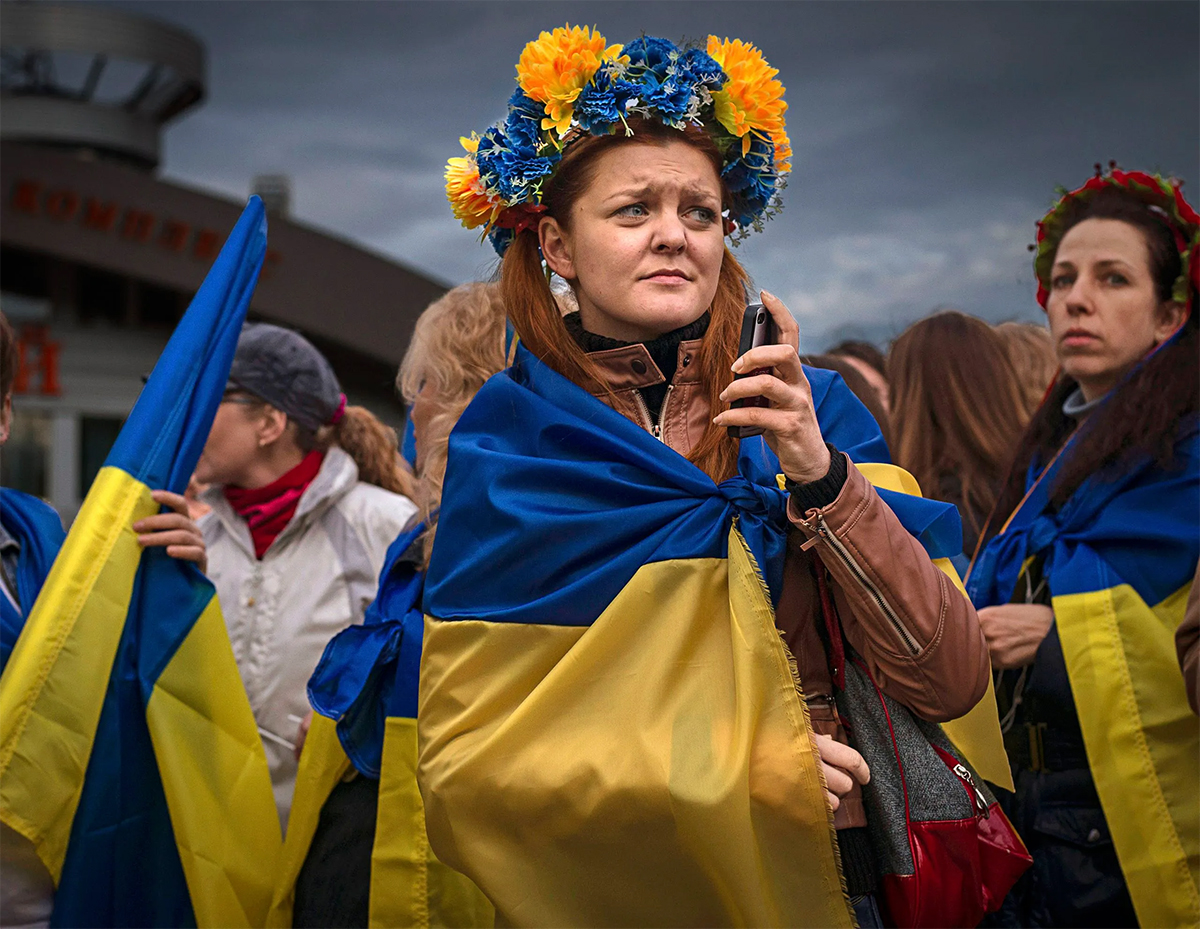
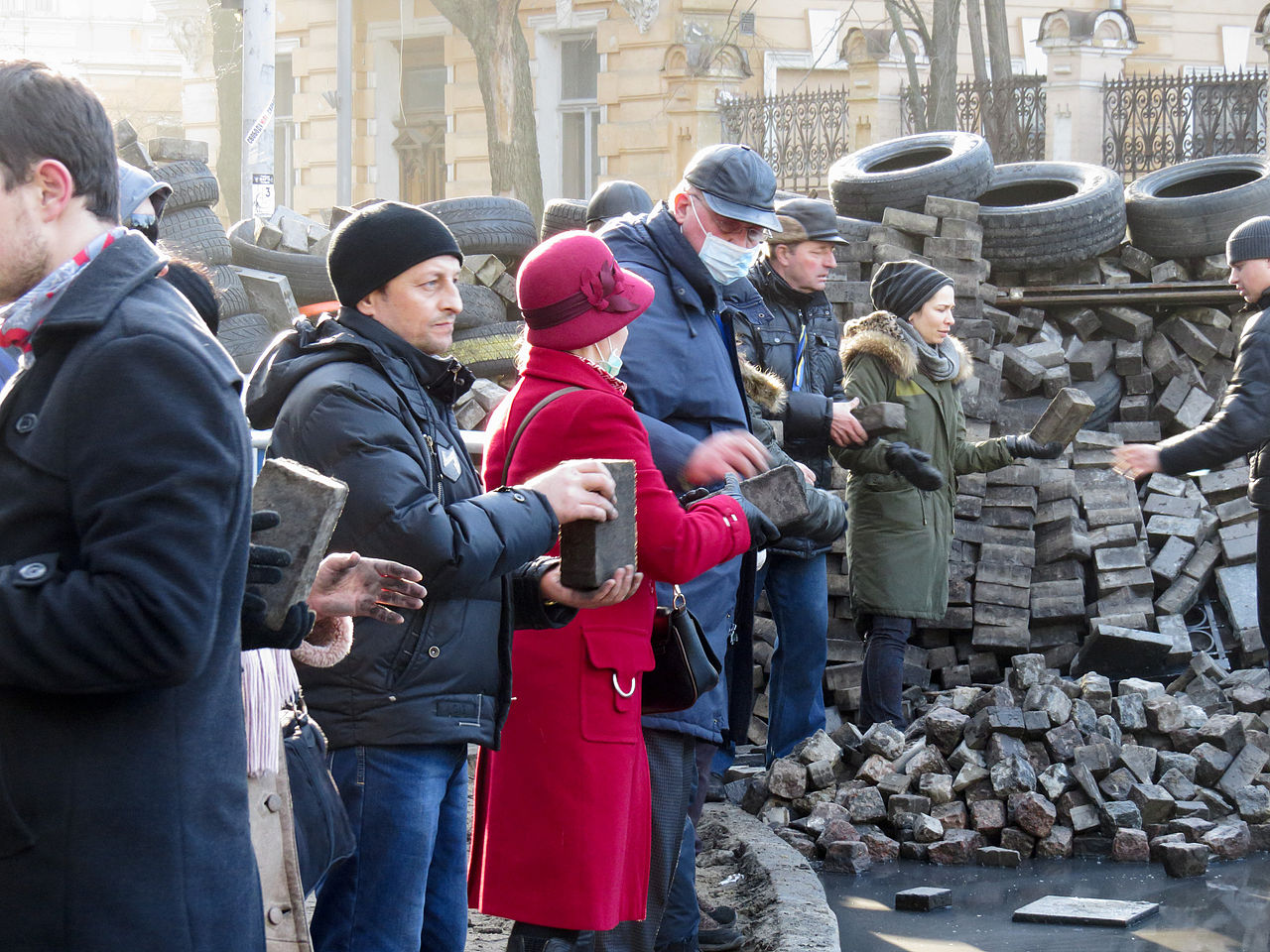 Protestors building a barricade
Protestors building a barricade
This repression was unable to put an end to the protest, and in February 2014, the ruling regime collapsed. By that time, though, more than a hundred protestors had lost their lives. In subsequent years, Ukraine made progress in reducing corruption and democratizing government – aims that were fundamental to
the protest movement.
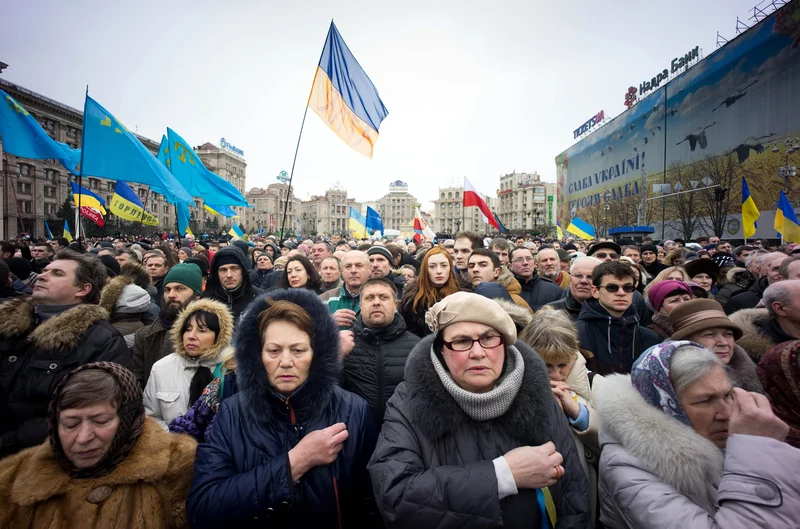
Gathering in Maidan Square to mark the first anniversary of the demonstrations in 2014 that left over a hundred protesters dead.
[reading of “Maidan 2014”]
The Maidan protest was successful in overthrowing a corrupt government and inaugurating a process of democratic renewal. That didn’t mean, though, that Ukrainians had established control over their own country. In February and March 2014, Russia annexed Ukraine’s southernmost region, Crimea, and also gave military support to the campaign launched by separatists in the eastern part of the country. This campaign was met with a Ukrainian counter-offensive, and the violent conflict continued for the next eight years, resulting in over 14 thousand deaths and forcing 2 million Ukrainians to relocate. Then in February 2022 Russia launched a full-scale invasion of Ukraine.
Russian forces did not quickly take control of Ukraine, as had been widely anticipated. Our country has mounted a remarkably effective resistance. Ukrainians are risking everything in order to push tyranny back and live in a free, democratic society. The ultimate aim that we all share is, of course, to end all militarism and war, to live in peace.
We will conclude today with an adaptation of Ukrainian poetry that draws on the work of Iya Kiva, Halyna Kruk, Kateryna Kalytko, Serhiy Zhadan, and other contemporary Ukrainian poets.
[poetry reading]
In February 2022, Russia’s invasion of Ukraine did not quickly take control of the country, as had been widely anticipated. In 2023 Ukraine continues to mount a remarkably effective resistance. Ukrainians are risking everything in order to push tyranny back and live in a free, democratic society.
Will Ukraine succeed in repelling the invasion and making good on the promise of Maidan 2014? The answer to that question depends in part on the support given by people like us. This is our fight too! The aim of this benefit reading is to raise funds for the Frankivsk Drama Theater. This theater company understands its mission as political and educational as well as artistic, and it performs not only in its hometown of Ivano-Frankivsk but also in other towns and villages in Ukraine. The theater also serves as a shelter for refugees and a community center. Your contribution will help the company continue this valuable work.
We will survive this war and win our freedom! Slava Ukraini.
Poetry Excerpts from the February 2023 Performance — Video Recording
Who We Are: The Ukraine Solidarity Actors Ensemble
We are actors, writers, and activists living in the San Francisco Bay Area. What brings us together is our support for the Ukrainian people, who are experiencing massive suffering and destruction wreaked by the Russian invasion.
Cast and crew biographies are here.
Our performances raise funds for the humanitarian work being done by the Frankivsk Drama Theater. The company’s recent activities are discussed here and here. (If you view any of these websites using the Google Chrome browser, you can right-click on a page to translate its content into English.)
We are:
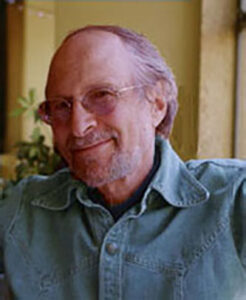
Raymond Barglow (Writer, Producer)
Gathered the Ukrainian voices that are heard in Ukrainian History on Stage.
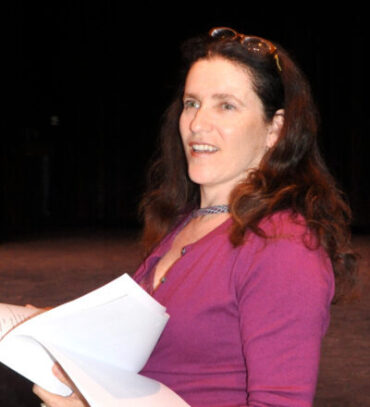
Aimee Greenberg (Director)
Aimee’s theatrical works have been performed worldwide. Has taught at many conservatories and universities.
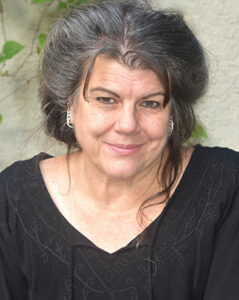
J. J. Van Name (Script Development, Ensemble)
Actor and a Text Coach of Shakespeare.
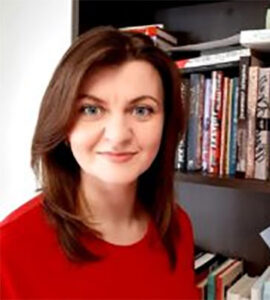
Nataliia Goshylyk (Narrator)
Professor in Linguistics, Vasyl Stefanyk Precarpathian National University in Ukraine. Lecturer in Ukrainian at UC Berkeley.
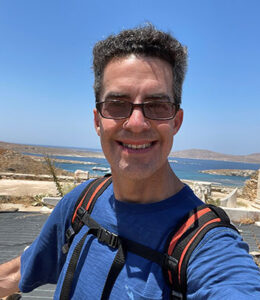
Jeremiah Clauss (Ensemble)
Actor, writer, teacher of religion and world history at Saint Mary’s school in Los Gatos.
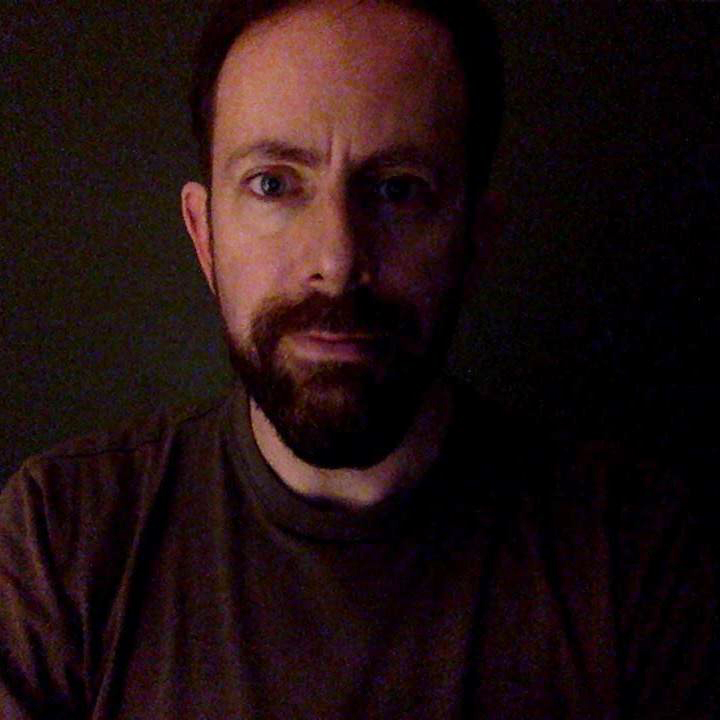
Kieron Edwards (Ensemble)
Actor, has performed with multiple theatre companies in the greater Bay Area.
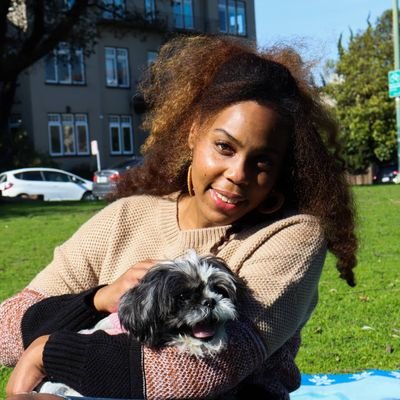
Tesia Bell (Ensemble)
Actor, storyteller. Has performed in many Bay Area theatre productions.

Lottie Pacheco-Lobatos (Ensemble)
Actor / Filmmaker.
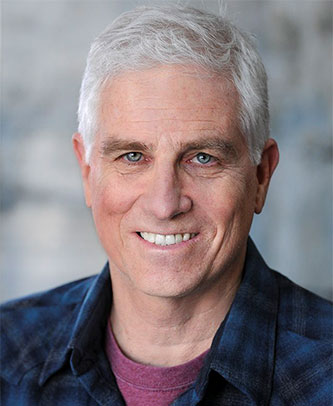
Ray Renati (Ensemble)
Actor, director, on stage, in film and television.
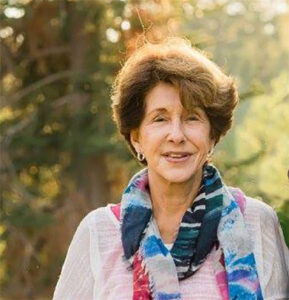
Margret Schaefer (Script Consultant)
Writer, Schnitzler translator (The Lonely Way at Mint Theater in NY, Anatol at Aurora in Berkeley).
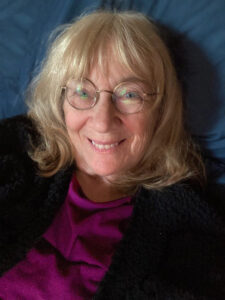
Pamela Montanaro (Script Consultant)
Former organizer of Cuba program at Global Exchange. Former actor and co-founder of Celebration Barn Theatre, South Paris, Maine.
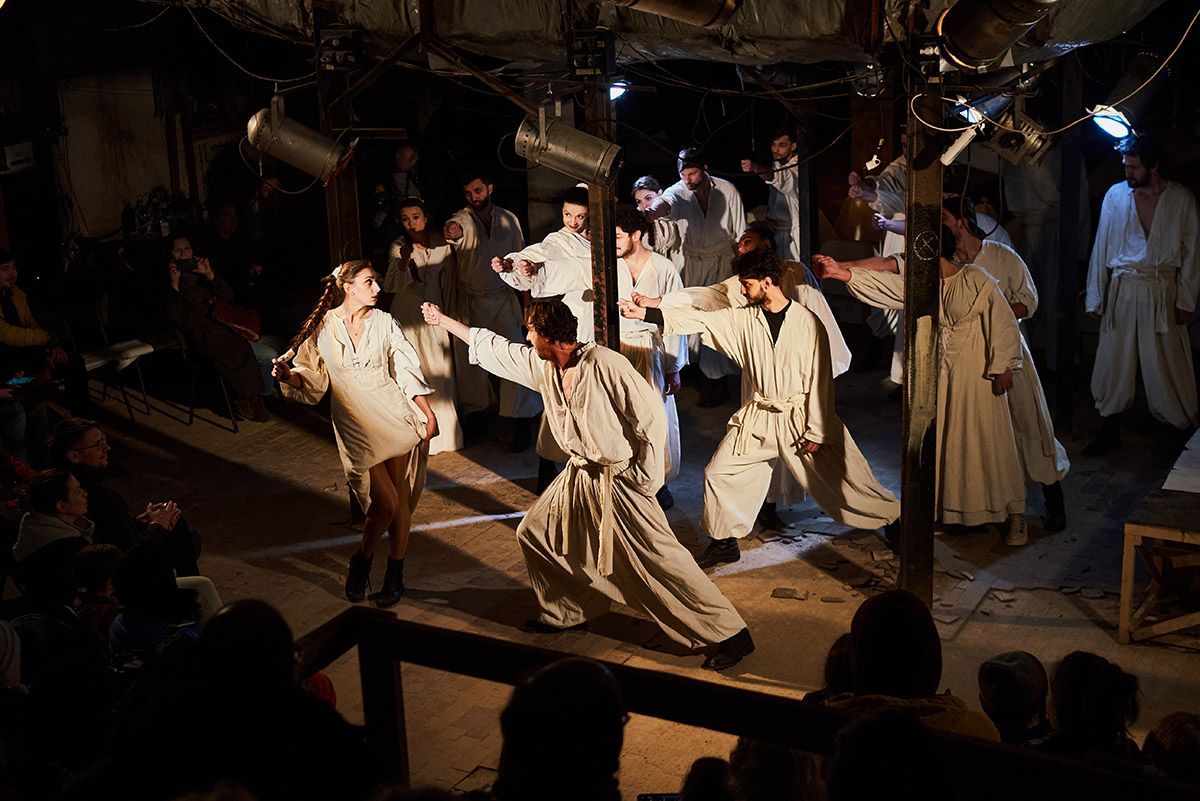
A scene from “Eneida,” a play about the Trojan War, performed by the Frankivsk Drama Theater in a bomb shelter in the basement of the building that houses the theater.
Contact us
We will be happy to discuss any aspect of this project with you. Our email address is: info@ukhist.org
Phone number is 510 486 1050.